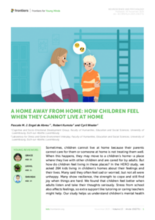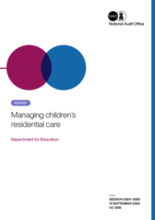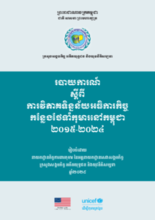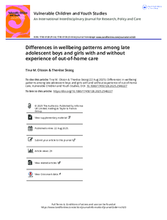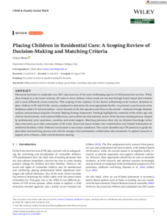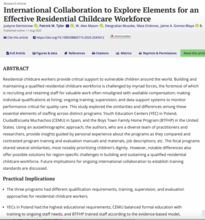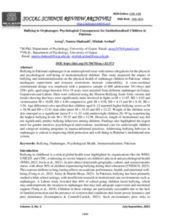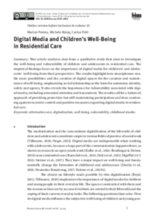Displaying 1 - 10 of 1511
This study systematically reviews qualitative research on how children in residential care perceive and experience safety, analysing nine studies to identify core dimensions of feeling safe. Findings reveal that safety is multifaceted and relational, encompassing violence and harm, relationships, structural conditions, and spaces, with children actively employing strategies to enhance their sense of security.
This study explores how children living in children’s homes in Luxembourg experience their daily lives, revealing that while many feel sad or worried, they also demonstrate resilience and the ability to find joy. The findings highlight that children feel better when adults listen and take them seriously, and that additional support with school and caring relationships can improve their well-being.
This study examines the educational experiences of children in Charitable Children's Institutions (CCIs) in Kenya, highlighting how institutional care often fills gaps left by inadequate education and other services in contexts of poverty. Findings reveal that children in CCIs face marginalization, stigma, and disrupted learning, while promising interventions include cross-sector partnerships, safeguarding training, and transitioning CCIs toward community-based support within national care reform.
This report examines the challenges faced by local authorities in providing cost-effective, high-quality residential care for looked-after children in England, where numbers have risen to 83,630 as of March 2024.
This report provides an in-depth analysis of trends and progress in reducing the number of residential care facilities in Cambodia and the children placed in them between 2015–2024.
This study explored wellbeing among Swedish adolescents with and without out-of-home care experience, using cluster analysis of 10 wellbeing indicators. It found two distinct groups—one with higher wellbeing and one with lower wellbeing—with girls, unemployed youth, and those with care experience more likely to fall into the reduced wellbeing cluster.
This scoping review examines how social workers decide to place children in residential care and how facilities are selected, drawing on 10 global studies analyzed through the Decision-Making Ecology framework. Findings reveal that decisions are often shaped by a child’s age, clinical needs, and professional discretion, but frequently lack structured assessments, consistent child involvement, and reliable information—pointing to the need for stronger collaboration and research to support more child-centred practices.
This study compares residential childcare workforce practices across programs in Poland, Spain, and the United States, examining recruitment, training, supervision, and performance monitoring. Findings reveal both shared priorities, such as upholding children’s dignity, and region-specific differences that suggest potential solutions and highlight the value of international collaboration to strengthen training standards.
Bullying in Pakistani orphanages is a serious but understudied issue that threatens children’s physical and psychological well-being. This study surveyed 600 adolescents aged 10–19 from orphanages in Gujrat, Gujranwala, and Lahore to examine the effects of bullying.
This article analyzes data from a qualitative study that aims to investigate the well-being and vulnerability of Swiss children and adolescents in residential care. The empirical findings focus on the importance of digital media for children’s and adolescents’ well-being from their perspectives.

